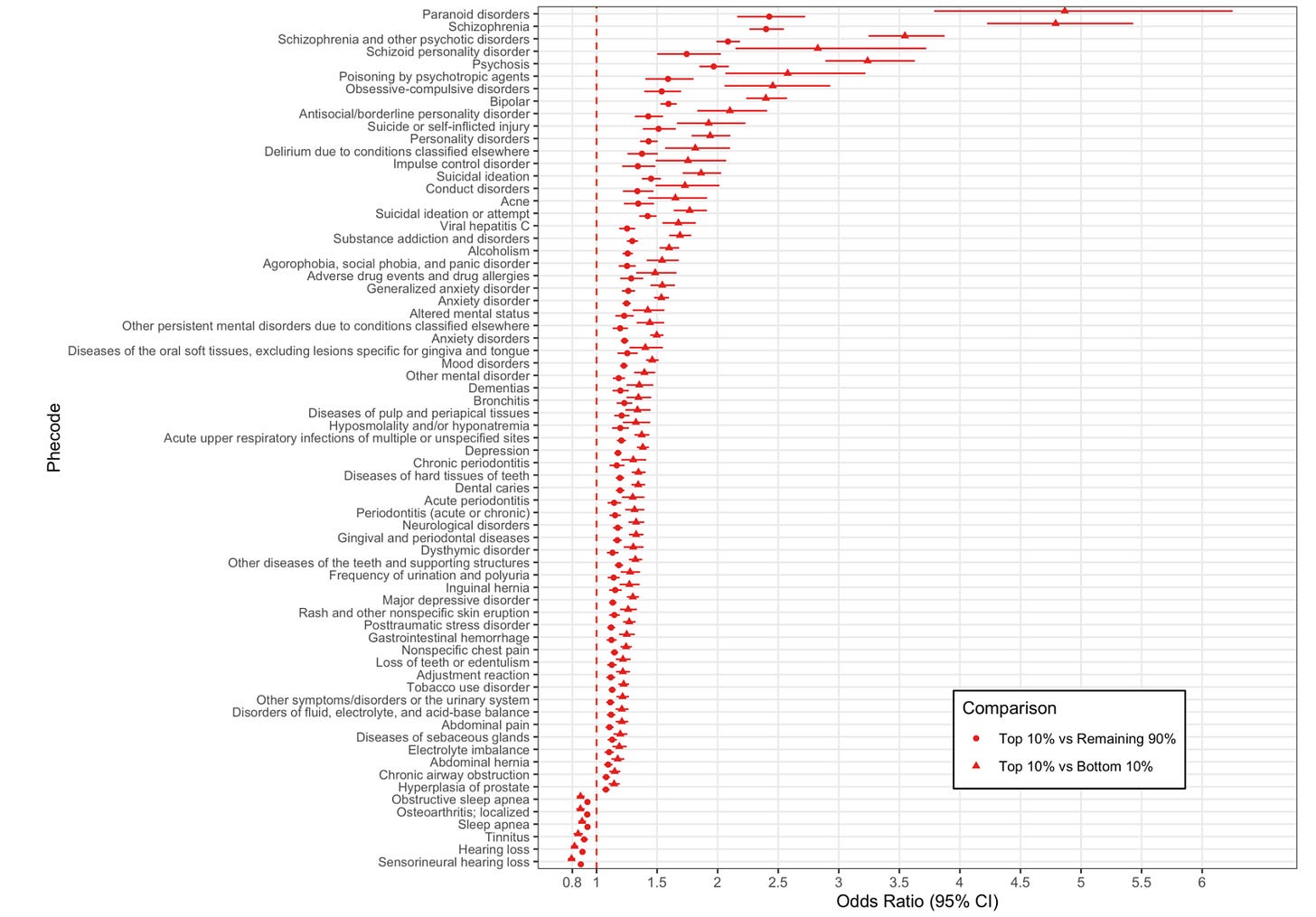What medical and psychiatric conditions are most associated with genetic risk of schizophrenia?
Results from a large VA cohort
Here’s a nice study by Bigdeli et al 2022, “Penetrance and Pleiotropy of Polygenic Risk Scores for Schizophrenia, Bipolar Disorder, and Depression Among Adults in the US Veterans Affairs Health Care System”, which is another paper showing the potential of polygenic scores in psychiatry.
Polygenic risk scores are a way of measuring an individual’s risk for a disease based on their genetic profile. They are becoming increasingly popular in research, as they offer a more nuanced and personalized approach to understanding disease risk than previous methods.
The authors found that polygenic risk scores for each condition were associated with having ever received a relevant psychiatric diagnosis. Higher schizophrenia polygenic scores also correlated with disease severity: those individuals with higher schizophrenia polygenic risk were more likely to have had inpatient treatment and more hospitalizations.
Higher polygenic risk scores were associated with increased odds for numerous mental and physical health diagnoses, even among individuals who lacked the formal diagnosis. For example, here are the results for which medical and psychiatric conditions are associated with the genetic risk of schizophrenia:

This is the figure for participants of broadly European ancestry, which I’m showing because the sample size is larger. The authors also found that the general trend of results replicated in participants of broadly African ancestry.
Here’s one way to think about this figure: people who have a family history of schizophrenia — who are, in turn, more likely to have a higher polygenic risk score for schizophrenia, even if they themselves do not have the diagnosis — may be more likely to have these other medical and psychiatric conditions.
Here are a couple of things that jump out to me:
1: It’s interesting that schizophrenia polygenic risk is just as strongly associated with a diagnosis of OCD as it is with bipolar disorder. There is a lot of discussion about schizo-obsessive disorder, which speaks to the overlap between the conditions in a subset of cases. I wonder about the extent to which this could be parsed out via genetics.
2: There are a few protective effects of schizophrenia polygenic risk scores, for example on hearing loss and osteoarthritis. That said, my personal bias is that I think these results are a bit too “negative” on the holistic effects of schizophrenia polygenic risk scores on life outcomes because it is focusing on medical and psychiatric conditions, as opposed to other life outcomes.
For example, a previous study found that the parents and siblings of people with schizophrenia were more likely to have a creative profession compared with the control group (ORParents = 1.55, 95% CI 1.43-1.67; ORSiblings = 1.36, 95% CI 1.26-1.48). It’s worthwhile to point out that this type of finding isn’t always replicated, though.
Personally, I’m most persuaded by the theory that schizophrenia risk variants are most likely under balancing selection in the population. Making them part and parcel of the human condition, as well as important to learn about in order to better understand the etiology of the disorder and develop more rational treatments.


